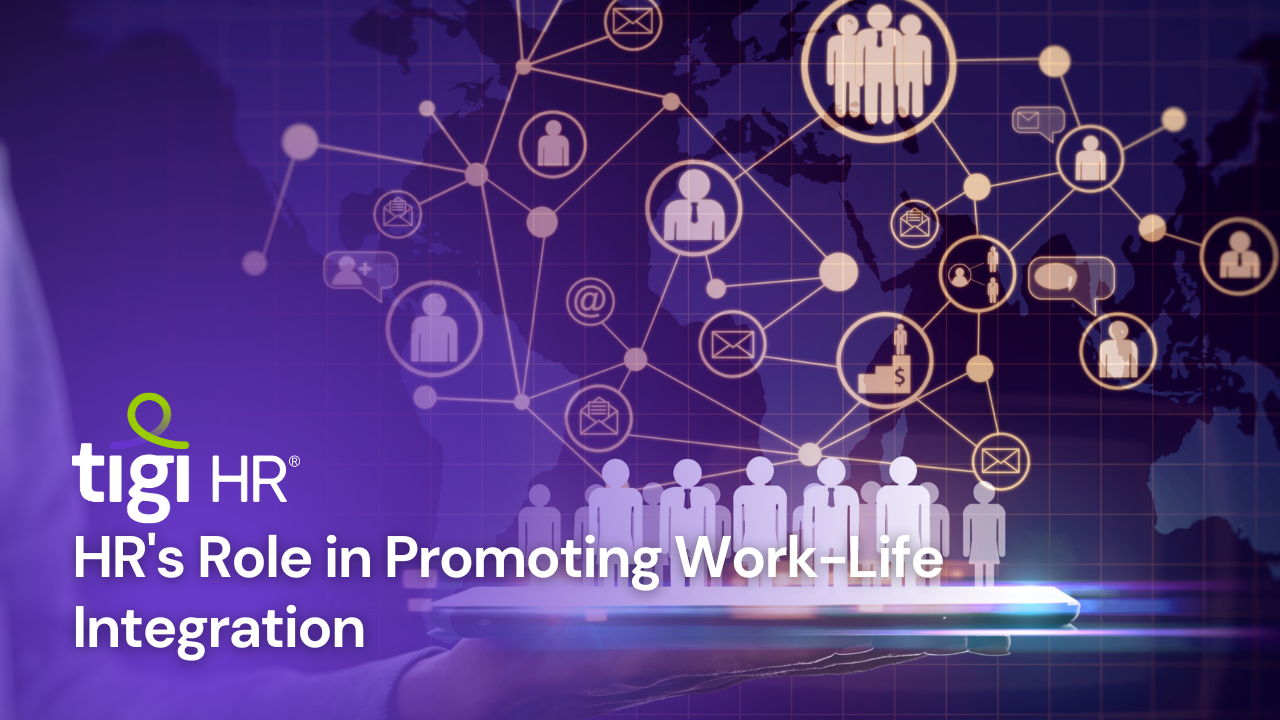In today’s fast-paced world, achieving a harmonious work-life balance has become a significant concern for employees. To address this, Human Resources (HR) departments have taken on a crucial role in promoting work-life integration. This article explores the multifaceted responsibilities of HR professionals in creating an environment that supports employees in managing their personal and professional lives effectively.
The Importance of Work-Life Integration:
Work-life integration is more than just a trendy buzzword; it’s a fundamental aspect of employee well-being. It’s about finding the right equilibrium between work-related commitments and personal life activities. When employees can balance these aspects successfully, they are more engaged, productive, and less prone to burnout. HR plays a pivotal role in facilitating work-life integration, as they are responsible for implementing policies, programs, and practices that prioritize employees’ needs.
Crafting Employee-Focused Policies:
One of HR’s primary responsibilities is developing policies that align with work-life integration principles. These policies may include flexible work hours, telecommuting options, and parental leave policies. By tailoring these policies to employees’ needs, HR fosters an inclusive and supportive work environment, allowing employees to better manage their personal and professional commitments.
Employee Assistance Programs (EAPs):
HR departments often establish Employee Assistance Programs (EAPs) to provide employees with resources and support for various life challenges. Whether it’s coping with stress, managing finances, or dealing with personal crises, EAPs offer confidential assistance to help employees navigate life’s complexities, reducing work-related stressors and promoting overall well-being.
Communication and Training:
HR professionals play a pivotal role in promoting work-life integration through effective communication and training programs. They ensure that employees are aware of available resources and encourage them to utilize these benefits. HR can also provide training on time management, stress reduction, and work-life balance to empower employees with the necessary skills to integrate work and life effectively.
Encouraging a Culture of Flexibility:
Creating a culture of flexibility is vital for work-life integration. HR can promote this by encouraging managers to accommodate employees’ unique needs and preferences. When employees feel supported in their quest for balance, they are more likely to remain committed to their roles and perform at their best.
Regular Feedback and Adaptation:
HR should regularly seek feedback from employees to understand how well work-life integration policies and programs are working. This feedback loop allows HR to adapt and refine their strategies continually. By staying attuned to employee needs and evolving with changing circumstances, HR ensures that work-life integration remains a top priority.
Measurement and Evaluation:
HR professionals can employ data-driven approaches to measure the effectiveness of work-life integration initiatives. This involves tracking metrics such as employee retention, absenteeism, and productivity. By analyzing this data, HR can identify areas for improvement and make informed decisions to enhance work-life integration further.
Conclusion:
In conclusion, Human Resources plays an indispensable role in promoting work-life integration within organizations. By crafting employee-focused policies, offering assistance programs, fostering a culture of flexibility, and continuously seeking feedback, HR professionals contribute to an environment where employees can thrive both personally and professionally. Prioritizing work-life integration is not only a testament to an organization’s commitment to employee well-being but also a strategic move that leads to increased productivity and employee retention.
Incorporating these strategies allows HR to take the lead in creating workplaces where employees can achieve the elusive yet essential balance between their personal and professional lives.
How To Win Corporate Conversation!
Corporate world, there are lots of conversations, mails, conference call, formal calls is going on each day with lot of people. There are many words are using as a formal & informal which exactly haven’t know that it is formally/informally used by us. Professional use many words in conversation that can be effect in to the communication and leads healthy relationship with clients.
Find trusted recruitment agencies : Click here





